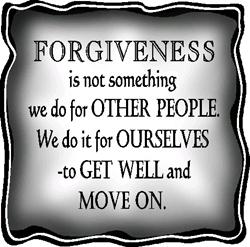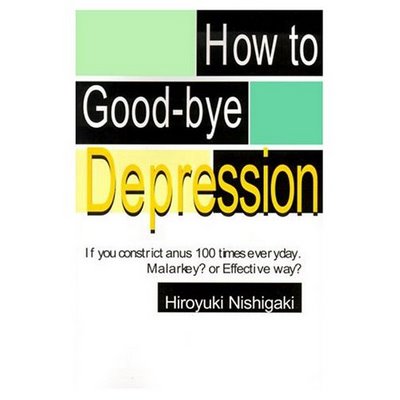The Male Privilege Checklist 1. My odds of being hired for a job, when competing against female applicants, are probably skewed in my favor. The more prestigious the job, the larger the odds are skewed.
2. I can be confident that my co-workers won’t think I got my job because of my sex - even though that might be true. (More).
3. If I am never promoted, it’s not because of my sex.
4. If I fail in my job or career, I can feel sure this won’t be seen as a black mark against my entire sex’s capabilities.
5. I am far less likely to face sexual harassment at work than my female co-workers are. (More).
6. If I do the same task as a woman, and if the measurement is at all subjective, chances are people will think I did a better job.
7. If I’m a teen or adult, and if I can stay out of prison, my odds of being raped are relatively low. (More).
8. I am not taught to fear walking alone after dark in average public spaces.
9. If I choose not to have children, my masculinity will not be called into question.
10. If I have children but do not provide primary care for them, my masculinity will not be called into question.
11. If I have children and provide primary care for them, I’ll be praised for extraordinary parenting if I’m even marginally competent. (More).
12. If I have children and pursue a career, no one will think I’m selfish for not staying at home.
13. If I seek political office, my relationship with my children, or who I hire to take care of them, will probably not be scrutinized by the press.
14. Chances are my elected representatives are mostly people of my own sex. The more prestigious and powerful the elected position, the more likely this is to be true.
15. I can be somewhat sure that if I ask to see “the person in charge,” I will face a person of my own sex. The higher-up in the organization the person is, the surer I can be.
16. As a child, chances are I was encouraged to be more active and outgoing than my sisters. (More).
17. As a child, I could choose from an almost infinite variety of children’s media featuring positive, active, non-stereotyped heroes of my own sex. I never had to look for it; male protagonists were (and are) the default.
18. As a child, chances are I got more teacher attention than girls who raised their hands just as often.
19. If my day, week or year is going badly, I need not ask of each negative episode or situation whether or not it has sexist overtones.
20. I can turn on the television or glance at the front page of the newspaper and see people of my own sex widely represented, every day, without exception.
21. If I’m careless with my financial affairs it won’t be attributed to my sex.
22. If I’m careless with my driving it won’t be attributed to my sex.
23. I can speak in public to a large group without putting my sex on trial.
24. If I have sex with a lot of people, it won’t make me an object of contempt or derision.
25. If I work in an office, I have the option of wearing a relatively value-neutral uniform that does not invite speculation about my sexuality or my gender conformity. (More).
26. My wardrobe and grooming are relatively cheap and consume little time. (More).
27. If I buy a new car, chances are I’ll be offered a better price than a woman buying the same car. (More).
28. If I’m not conventionally attractive, the disadvantages are relatively small and easy to ignore.
29. I can be loud with no fear of being called a shrew. I can be aggressive with no fear of being called a bitch.
30. I can ask for legal protection from violence that happens mostly to men without being seen as a selfish special interest, since that kind of violence is called “crime” and is a general social concern. (Violence that happens mostly to women is usually called “domestic violence” or “acquaintance rape,” and is seen as a special interest issue.)
31. I can be confident that the ordinary language of day-to-day existence will always include my sex. “All men are created equal,” mailman, chairman, freshman, he.
32. My ability to make important decisions and my capability in general will never be questioned depending on what time of the month it is.
33. I will never be expected to change my name upon marriage or questioned if I don’t change my name.
34. The decision to hire me will never be based on assumptions about whether or not I might choose to have a family sometime soon.
35. Every major religion in the world is led primarily by people of my own sex. Even God, in most major religions, is usually pictured as being male.
36. Most major religions argue that I should be the head of my household, while my wife and children should be subservient to me.
37. If I have a wife or live-in girlfriend, chances are we’ll divide up household chores so that she does most of the labor, and in particular the most repetitive and unrewarding tasks. (More).
38. If I have children with a wife or girlfriend, chances are she’ll do most of the childrearing, and in particular the most dirty, repetitive and unrewarding parts of childrearing.
39. If I have children with a wife or girlfriend, and it turns out that one of us needs to make career sacrifices to raise the kids, chances are we’ll both assume the career sacrificed should be hers.
40. Magazines, billboards, television, movies, pornography, and virtually all of media is filled with images of scantily-clad women intended to appeal to me sexually. Such images of men exist, but are much rarer.
41. On average, I am under less pressure to be thin than my female counterparts are. (More). If I am fat, I probably suffer fewer social and economic consequences for being fat than fat women do. (More).
42. If I am heterosexual, it’s incredibly unlikely that I’ll ever be beaten up by a spouse or lover. (More).
43. Complete strangers generally do not walk up to me on the street and tell me to “smile.”
44. On average, I am not interrupted by women as often as women are interrupted by men.
45. I have the privilege of being unaware of my male privilege.
The power of this list is to force men and women to think in concrete terms about how men are still perceived as more important or more powerful than women, and how women internalize a profound sense of inferiority. Also, what this list clarifies is that contemporary feminist battles are more complex than they were in the Second Wave, when sexism was more obvious.
I want to add one last observation here. During the last few months that I have had this website, I have encountered many trolls who show up and predictably complain about the damage that feminists do and how destructive their political activism is to the family or other stalwart institutions. If we let these looney right wingers continue their push back on feminism, then these sorts of concerns above will be pipe dreams to tackle, since we will return to the pre-Civil Rights/Feminist Revolution, wherein women were denied access to professions, education, and any right to make decisions about their body, who they want to sleep with, and when they could terminate an abusive relationship.










